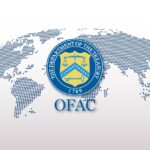
By Mision Verdad – Oct 20, 2020
The oil and income configuration of the Venezuelan economy has marked its patterns of operation for the past one hundred years. The most visible aspect of this historical arrangement is the dependence on imports of a wide range of goods and services, both for final consumption, and of raw materials for industrial use, financed largely with money derived from oil exports: “petrodollars.”
This dependent relationship has created a historical framework for the vulnerability that has hampered the possibilities of endogenous and genuine economic development in Venezuela. The Venezuelan economy, precisely because of the import status imposed by US and Anglo-Dutch oil companies at the beginning of the 20th century, is notably exposed to global economic turmoil and falling prices in the international oil market.
Historically, Venezuela has been marked by the ups and downs of the oil industry. Pronounced oil income drops, due to the decline in international oil prices, in the past have led to economic crises, preventing the import rate from remaining high enough to supply the domestic market.
Dependence on imports is greater than 50%. This figure varies depending on the form of imported product, but in general terms the balance has been historically negative.
RELATED CONTENT: Metro Wagon Repairs Progress Despite US Sanctions – Much Needed Improvement
The main Venezuelan imports can be divided into those that are oil-related, food and medicines, raw materials, and industrial inputs.
For some forms the dependence exceeds 70%, as is the case with some chemical inputs used for medicine, primary alimentary materials, or those for final consumption (rice, wheat, corn, etc.).
Directly or indirectly, the Venezuelan State has historically assumed the cost of the vast majority of imports by controlling the flow of petrodollars.
In summary, the level of consumption of the population is highly dependent on imported products, and the foreign currencies from oil obtained by the Venezuelan State. Therefore, a drop in oil income directly affects the amount of imported goods, driving them up in price and ultimately reducing the purchasing power of the population.
BASIC DATA AND ELEMENTS
Aware of this historical vulnerability, the United States government has deployed a severe blockade against Venezuelan imports, with a view to disrupting the population’s access to food, medicine and other basic goods.
To do this, they have implemented various strategies:
- Blocking accounts of Venezuelan banks and institutions in international banks from where payments for imports are made. In 2016-2017, as a result of the Obama Decree (2015) and the National Assembly dominated by the opposition, the Venezuelan accounts of the Venezuelan State in banks such as Citibank, Commerzbank, among other institutions, were closed, preventing imports using the international financial system .
- Application of severe restrictions against PDVSA and CITGO in 2017, 2018 and 2019 that closed the US market to Venezuelan oil exports, their main destination. This produced a severe drop in the income received by the Venezuelan State, limiting its ability to carry out basic imports. The Torino Capital bank, in a report published in 2019 on the impacts of the oil “sanctions”, affirms that, between 2017 and 2019, Washington’s siege measures against PDVSA caused a drop in production of 797,000 barrels per day, which would represent some $16.9 billion lost.
- Theft, kidnapping and confiscation of Venezuelan public funds including oil assets, liquid money and gold -in the order of $30 billion- at the hands of international financial institutions represents another strategic obstacle to imports. This comprehensive looting maneuver has been justified by the fake presidency of Deputy Juan Guaidó and his alleged campaign to “protect Venezuelan assets.”
RELATED CONTENT: Cape Verde Supreme Court Sees Irregularities in Alex Saab Extradition Decision
This strategy of multiform aggression and expanded blockade against the financial capacities of the Venezuelan State to carry out basic and vital imports for the consumption of the Venezuelan population, has had dramatic results.
- According to figures from the aforementioned report by Torino Capital, in 2013 direct and indirect public imports were in the order of $45 billion while those of food amounted to $11 billion. In the following years, a critical drop was recorded until 2018, when regular imports only reached $9 billion, and food $2.3 billion.
- In 2019, according to private estimates supported by BCV figures, imports remained at a level similar to those of 2018 but with a clear downward trend, exacerbating the economic crisis and inflation due to the collapse of imports and the reduction of the supply of available products.
- In 2020, with the intensification of the comprehensive blockade against the Venezuelan economy by the US government, supported by the radical sector of the anti-Chavista parties (G4), the fall in imports has marked a new alarming milestone. In March this year, the president of the Chamber of Merchants, Industrialists and Customs, pointed out that the fall in private imports had fallen by 98%, aggravating the induced crisis in public imports.
- Recently, in the framework of the debate around the Anti-Blockade Law, President Nicolás Maduro explained: “between 2014 and 2019, Venezuela experienced the sharpest drop in external income in its history, perhaps it is the first time that I refer to these numbers in public: in six years we lost 99% of the volume of income in foreign currency.” The figure presented by the President illustrates the collapse of imports as a result of the blockade, and shows how badly the country’s foreign currency income has been damaged, regarding the country’s ability to make foreign purchases to face the crisis.
The United States’ blockade against Venezuela has exacerbated the crisis of the Venezuelan economy, taking advantage of its historical vulnerabilities.
The collapse of imports began in 2014-2015, just when the first blockade measures began to be formally executed against Venezuela, which has weakened the purchasing power of ordinary Venezuelans.
The Venezuelan State, despite the oil price crisis and the siege against PDVSA, has the necessary resources to increase imports. What prevents it? The kidnapping of more than $30 billion abroad, the illegal confiscation of CITGO, and the forced isolation of the country from the international financial system, required to make the purchases of products that the country needs.
Given that imports have plummeted due to the blockade, the strategic task for the new parliamentary cycle must be based on three offensive strategies: breaking the blockade, carrying out strategic imports, and changing the orientation of the economic model towards domestic production in order to overcome the historical obstacle of be a dependent economy.
The deputy Juan Guaidó and the opposition deputies linked to his false interim office have been accomplices and architects of the fall in Venezuelan imports: in 2017, Julio Borges sent dozens of letters to international banks asking them to close Venezuelan accounts, and thereafter directly requested “sanctions” to block the country’s main source of income: PDVSA.
Featured image: The Venezuelan people have openly rejected the blockade imposed by Washington on the country (Photo: Manaure Quintero / Reuters).
Translation: OT/JRE/SL

Misión Verdad
Misión Verdad is a Venezuelan investigative journalism website with a socialist perspective in defense of the Bolivarian Revolution
- Misión Verdad#molongui-disabled-link
- Misión Verdad#molongui-disabled-link
- Misión Verdad#molongui-disabled-linkApril 5, 2024
Tags: Blockade CITGO crimes against humanity imports PDVSA Torino Capital US Imperialism US Sanctions Venezuela
Share this:
- Click to share on Twitter (Opens in new window)
- Click to share on Facebook (Opens in new window)
- Click to share on LinkedIn (Opens in new window)
- Click to share on WhatsApp (Opens in new window)
- Click to share on Reddit (Opens in new window)
- Click to share on Telegram (Opens in new window)
- Click to email a link to a friend (Opens in new window)




